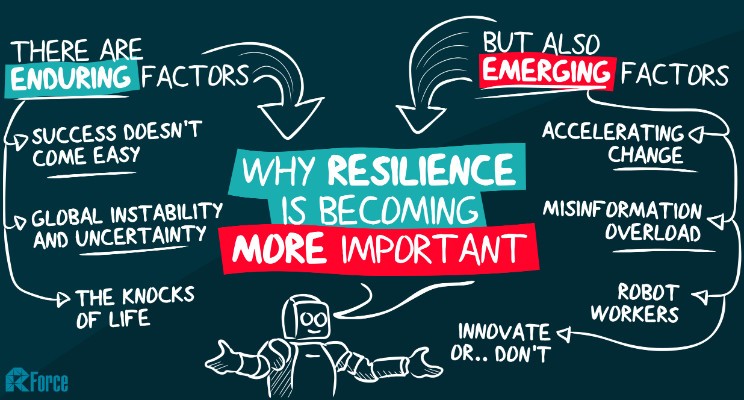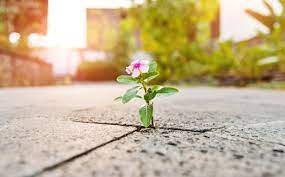“No one escapes pain, fear, and suffering. Yet from pain can come wisdom, from fear courage, from suffering strength – if we have the resilience”
Just think of a bridge spanning a wide river, maintaining its integrity despite twisting in the wind, or a small flower growing through concrete. A resilient material can return to its original state after being bent or stretched—often dramatically, if we have the virtue of resilience.
What and Why to become resilient?

💯 It is a complex concept involving traits, environmental factors, and a learned capacity that comes from experience.
👍 resilience isn’t just a kind of solitary internal “grit” that allows us to bounce back, People can survive the most challenging ordeals—some even thrive. And yet, they may be unaware or unclear exactly how they got through the challenges they faced.
💡💡 Resilience is the capacity to remain flexible and adaptable in our thoughts, feelings, and behaviors while facing life’s challenges. or extended periods of pressure, so that we emerge from difficulty stronger, wiser, and more capable.
👥 It is a vital resource that can protect individuals from the harmful effects of stress and help them regain a sense of control in their lives, even leading to growth and positive change.
🧠 The ability to bounce back from setbacks is often described as the difference between successful and unsuccessful people.
💡 Resilience is a fundamental aspect of mental health and refers to a person’s ability to adapt and bounce back from negative 犀利士 experiences, such as stress, adversity, or trauma.
🌟 Resilience does not mean ignoring problems or suppressing emotions—rather, it enables us to face challenges head-on and find ways to persevere.
💪 There is even evidence that resilience can help protect us from physical illness. But resilience, conventional thinking assumes, is something we find within ourselves only when we are tested — a kind of solitary internal “grit” that allows those of us who are strong to bounce back.
💡 Resilience has been shown to positively influence work satisfaction and engagement, as well as overall well-being, and can lower depression levels.
🚫In short, resilience is an important resource that appears to be the secret to success in the outer world and the basis of good mental health.
How to Build Resilience ?

📈 Resilience can be developed and maintained through various techniques, including seeking support, setting goals, learning from experiences, discovering and using strengths, developing coping strategies, and promoting a positive outlook, have show they share the following characteristics:
- They have a positive, realistic outlook. They don’t dwell on negative information and instead look for opportunities in bleak situations, striving to find the positive within the negative.
- They have a moral compass. Highly resilient people have a solid sense of what they consider right and wrong, and it tends to guide their decisions.
- They have a belief in something greater than themselves. This is often found through religious or spiritual practices. The community support that comes from being part of a religion also enhances resilience.
- They are altruistic; they have a concern for others and a degree of selflessness. They are often dedicated to causes they find meaningful and that give them a sense of purpose.
- They accept what they cannot change and focus energy on what they can change, resilient people reappraise a difficult situation and look for meaningful opportunities within it.
- They have a mission, a meaning, a purpose. Feeling committed to a meaningful mission in life gives them courage and strength.
- They have a social support system, and they support others. “Very few resilient people, go it alone.
- Overall, resilience is important because it helps people, communities, and systems to thrive in the face of adversity, to manage stress and uncertainty, and to continue to develop and improve over time.







